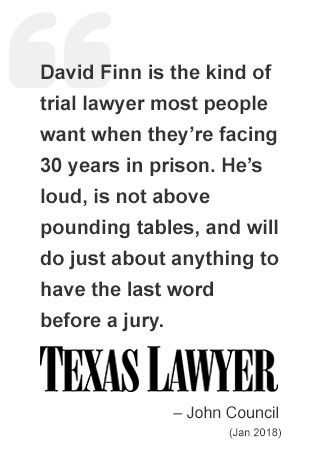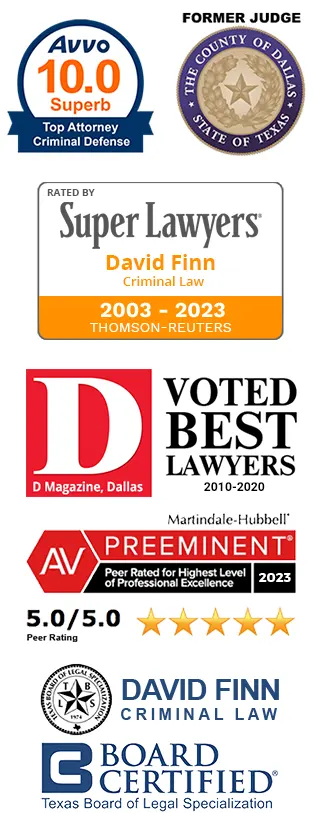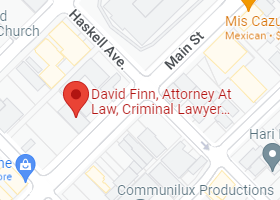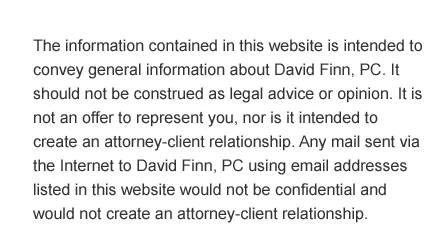


What are common Texas parole definitions?
Parole is the discretionary and conditional release of an offender from prison, by a Board of Pardons and Paroles decision, to serve the remainder of his/her sentence under supervision in the community.
Parolee is a convicted felon released from incarceration to serve a portion of their sentence under supervision in the community (parole). A parolee reports on a regular schedule to a Parole Officer, and must obey specific conditions of release until the original sentence is completed.
Parole-in-Absentia (PIA) is a release for parole-eligible offenders who are serving sentences in out-of-state prisons, federal facilities, or state and county jails.
Parole Officer (PO) is an employee of the TDCJ-Parole Division who is responsible for supervising releasees under parole or mandatory supervision.
Pre-Parole Investigation (PPI) is an investigation of an offender’s parole release plan, taking into consideration the living arrangements, employment plans, and treatment and counseling programs, which the offender will be following while under parole, release. Pre-Parole Transfer (PPT) are transitional facilities that provide pre-parolees counseling, on-site academic and vocational education and services, and other associated programming during the last 12 months of their incarceration.
Probation or Community Supervision is the placement of an offender under supervision for a specified length of time, as ordered by a court, with court-imposed rules and conditions.
Community supervision (formerly called adult probation) may be ordered for misdemeanor or felony offenses and is generally imposed instead of a jail or prison sentence.
State Jail Felonies are offenses (primarily property crimes and low-level controlled substance offenses) committed after September 1, 1994.
Confinement for the full term of a sentence may be ordered if the conditions of community supervision are violated. State jail sentences cannot exceed two years for one offense, but a repeat offender may receive overlapping state jail sentences not to exceed three years.
Supervision Plan is for supervising offenders on community supervision. It is developed by a community supervision officer, based on an assessment of the offender’s needs and his or her level of risk to society.
Indirect Supervision File is a file and/or record of an offender under supervision who meets one of the following criteria:
- an offender who neither resides nor works within the jurisdiction of the CSCD and who receives the supervision in other jurisdictions;
- an offender who neither resides nor works within the jurisdiction but continues to submit written reports on a monthly basis because he is ineligible or unacceptable for supervision in another jurisdiction;
- an offender who has absconded or who has not contacted his community supervision officer (CSO) in person within three months; an offender who resides or works in the jurisdiction, but who, while in compliance with the orders of the court, nevertheless, does not meet the criteria for direct supervision; or
- offenders who reside and work outside the jurisdiction but report in person and who do not fall under the direct supervision definition.
Discretionary Mandatory Supervision (DMS)
In 1995, the 74th Legislature gave the Board of Pardons and Paroles the authority to review eligible offenders whose offenses were committed on or after September 1, 1996, for possible release to Discretionary Mandatory Supervision. The Board must review eligible offenders on or before their discretionary mandatory eligibility date. However, as with parole release, the Board has the discretion to grant or deny release.
Mandatory Supervision (MS) is a type of release from prison provided by law for restricted categories of offenders. Eligible offenders are released on MS when their calendar time served added to their good time credit equals the length of their prison sentence. Under the law in effect until August 31, 1996, release to mandatory supervision was automatic, with no requirement for release approval from the Board of Pardons and Paroles (BPP).
Intensive Supervision Parole (ISP) is a program that supervises prison releasees who are most likely to return to prison. The program requires a minimum of one contact per week and a more intense level of parole supervision than other lower-risk parolees receive. Intensive Supervision Probation (ISP) is an intensive level of supervision for offenders on community supervision who are at higher risk of violating the conditions of their supervision.
Interstate Compact Supervision (ICS) is for offenders on community supervision (probation) or parole, who meet specific eligibility criteria, may be transferred to another state under the Interstate Compact system.
Intermediate Sanction Facility (ISF) is a fully secured facility used for short-term incarceration of offenders who violate the conditions of their community supervision, parole, or mandatory supervision. ISFs are operated by CSCDs for community supervision offenders and by the Parole Division for parolees and mandatory supervision offenders.
Conditions for Parole
- A parole panel may require as a condition of parole or mandatory supervision that releasees submit to a program of testing for controlled substances.
- An offender on parole or community supervision who fails to report to his/her Parole Officer or Community Supervision Officer and cannot be located for the purpose of establishing or continuing supervision is subject for a warrant.
Serve-All is a Board of Pardons and Paroles decision for offenders who are considered not ready for parole and who have less than three years until release to mandatory supervision or until discharge. The offender is required to remain in prison until reaching their mandatory supervision release date or their discharge date.
Set Off is an informal term for Next Review Date.
Texas Council on Offenders with Mental Impairments (TCOMI) is a 29-member collaborative council that addresses the needs of juvenile and adult offenders with mental illness, mental retardation or developmental disabilities.
Mentally Retarded Offender Program (MROP) is a program that places mentally retarded releasees on a specialized caseload with a parole officer trained specifically for providing supervision and services that meet these offenders’ special needs.
Special Needs Parole is an early parole, with Board of Pardons and Parole approval, permitted for offenders who are elderly, terminally ill, physically handicapped, mentally ill or mentally retarded.
Sex Offender (SO) are offenders who have been sentenced for committing a sexual offense, have a past conviction for an offense involving sexually deviant behavior, have displayed sexually deviant behavior in the commission of any offense, or have admitted committing sexually deviant behavior. Sex offenders require a higher degree of supervision than other offenders do.
Sex Offender Treatment Program (SOTP) has for its primary goal to reduce the rate of re-offense and move the participant toward a more pro-social lifestyle.
Substance Abuse Treatment Facilities (SATFs) primarily provide treatment and rehabilitation to offenders with substance abuse problems. They also offer education and life skills training. They may offer vocational training and 24-hour supervision.
Releasee is a convicted felon released from incarceration to serve a portion of their sentence under supervision in the community on parole or mandatory supervision. A releasee reports on a regular schedule to a Parole Officer, and must obey specific conditions of release until the original sentence is completed.
Releasees shall be tested for the major drugs of abuse in any combination deemed appropriate by the parole officer. The major drugs of abuse include, but are not limited to, amphetamines, barbiturates, cocaine, marijuana, and opiates. A periodic evaluation shall determine the necessity to change testing patterns and illicit substances to be tested for.
Restitution Center is a community-based correction facility that provides 24-hour close supervision and a highly structured environment for non-violent felons. Offenders are confined to the center except to go to their place of employment, to perform community service work, or to attend education or rehabilitation programs.
Diversion Programs (DP) provide effective alternatives to sending nonviolent offenders to prison. These programs offer literacy training, substance abuse treatment and other rehabilitative services to offenders on community supervision.
Therapeutic Community (TC) is a substance abuse treatment program involving non-punitive treatment modes that result in overcoming addictive behavioral patterns leading to substance abuse.
Pre-Release Substance Abuse Program (PRSAP) is a program that serves Institutional Division offenders with serious substance abuse dependence. Programming consists of two months of orientation, three months of intensive structured treatment and one month of aftercare treatment, all of which is provided at the facility.
Transitional Treatment Center (TTC) is the aftercare component of the treatment program for releasees from the IPTC and SAFF facilities, and lasts for three months. A 90-day residential aftercare program for offenders on community supervision. An offender is referred to a TTC after completing his or her court-ordered sentence in a Substance Abuse Felony Punishment Facilities or SAFPF.
Treatment Alternative to Incarceration Program (TAIP) provides screening, assessment and referral services to offenders arrested/sentenced for a substance abuse related offense, or who have a history of substance abuse.
Discharge Date is the date an offender completes their sentence and is released from incarceration, parole, mandatory supervision, or community supervision.
Electronic Monitoring (EM) uses an electronic device placed on an offender on community supervision, parole, or mandatory supervision to monitor his/her location and activities.
Next Review Date (NR) is a Board of Pardons and Paroles decision stipulating an offender is not ready for parole, but the case will be reviewed again within one to three years.
Pardon is an executive clemency, which absolves an individual from the legal consequences of their crime and conviction. There are several categories of pardons, including full pardons, conditional pardons, and pardons based on innocence.
Good Conduct Time is Credit for good conduct and participation in certain programs.
Intrastate Transfer is an indirect supervision in which offenders on community supervision transfer to another county or community supervision department.
Project COPE (Community Opportunity Programs in Education) is a consortium of the TDCJ-Parole Division, Texas Youth Commission, TDCJ Windham Schools, Community Supervision and Corrections Departments, and community adult education providers. COPE’s goal is to deliver education services to releasees who have education skills below the sixth grade level and to assist releasees in obtaining General Equivalency Diplomas.
Protective Custody is maximum custody assignment for offenders who require protection at all times due to threat of harm by others. Solitary Confinement is the separation of an offender from the general population as punishment assessed during the disciplinary process.
Technical Violation is a violation of one or more of the rules of community supervision, parole, or mandatory supervision, not including commission of a new offense.
Violations are failure by offenders to abide by a rule or condition of their supervision. Such violations may be either technical or criminal in nature.
Offender is a generic term that applies to a person under the supervision of the Texas Department of Criminal Justice or a Community Supervision and Corrections Department.
Phone Numbers
Office: (214) 538-6629







